For a promotion of unconscious motivation words

Definition of words
Smallest unit of language expression, the word is a linguistic sign. According to the theory of Ferdinand de Saussure, the linguistic sign unites, not a thing and a name, but a concept, the signified and an acoustic image (or sensitive) the signifier is not the hardware, but the impression psychic that sound. The linguistic sign is therefore defined as a psychic entity with two sides: signifier / signified. Thus the word "tree" is a sign language combining form sound / tri:/ the concept tree.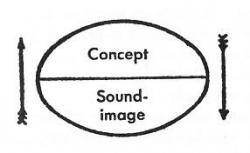
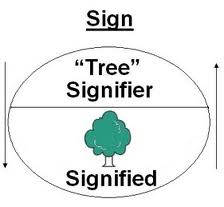
Ferdinand de Saussure four main characteristics attributed to the linguistic sign:
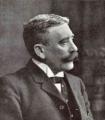
- His arbitrary: the link between the signifier and the signified is arbitrary (that is to say, unmotivated), because the same concept can be associated with different acoustic images according to language .
- The linear nature of signifier: "the meaning of nature hearing takes place in time." Elements of signifiers are thus necessarily one after the other, in a linear sequence: they form a synchronic chaîne.
- His immutability: the signifier associated with a given concept is essential to the linguistic community: a speaker can not decide to change arbitrairy.
- His mutability diachronic : the linguistic signs can also be modified by time, by linguistic evolution with change of the signifier, the signified or report.
--------------- --------------
The sign is arbitrary. "This is modern science that says, not as a science, too (it would have to demonstrate this other than some questionable parables), but rather as a church and dominant discourse. Certainly, once asked that the sign is arbitrary, one may wonder how it is that linguists are still something to say, how consistently they can still get it. This is probably the Dogma is also a mystery " wrote Professor of Linguistics at the Sorbonne Michel Launay 1990.
Because the saussurean definition - it is necessary to state at the outset - concern conscious language, but no language of the unconscious, we will see, properties almost opposite ! Indeed, the purely linguistic reasoning is based on the separation between what conscience is clear: the referent extralinguistic and linguistic signs intrapsychic with which she plays to form a language, cut off from any physical reality of the referent. Linguist (as many scientists, and saw that it separates the field studying other sciences) is confined to the study of language production by the conscious brain areas left language, cutting support biological or physiological upstream . This linguistic science, mainly literary (excluding the field of phonetics), does not take into account the capabilities of the eye informative nor those brain areas that receive visual lines and colors of the object, or information from other organs sensory. In addition, it removes the emotional brain essential to memory and expels any parameter unconscious while marginalizing certain uses of language considered deviant, such as poetry, puns, slips of the tongue and the "mistakes", the words childish diminutives, the content of dreams,onomatopoeia and onomatopoeic words home! By excluding the referent, yet real, the current language is only a pseudo-language virtual and dehumanized anorganic.
Vision is essential to thought, so the development of language can not escape! Vision is the dominant sense in the apprehension of space. It has unique properties that allow it to deal with reliable accuracy in a very short time, a large amount of information, some very distant in space, such as the positioning of the stars in the sky (in millions light-years) through which the first navigators could move. The survival of humans and animals was only possible thanks to their ability to escape danger or protect themselves. However, some layers of neurons in the lateral geniculate body brain manage the visual information processing certain neurons colors, the majority treats the geometric lines, others are sensitive to fast movements, reacting at 50 milliseconds, which allow adaptation performance ultra- rapid changes threatening the environment.
 In the Cratylus, Plato describes the two opposing theories on the nature of words to Hermogenes, a supporter of the arbitrariness of the sign, there is between what would later be named signifier and signified that abstract and a link extrinsic established by agreement, while for Cratylus, partisan motivation that Socrates defended the words are painting things, they look like what they mean, they are Symbols. Since Plato, opposition motivation / arbitrary and has not stopped supporters of motivation were widely majority until the arrival of Saussure. It should be mentioned that Charles Nodier , born in Besançon (France) was published in 1808 an excellent "Dictionary of French onomatopoeia" in which he argued for the onomatopoeic of the glossary and French languages
In the Cratylus, Plato describes the two opposing theories on the nature of words to Hermogenes, a supporter of the arbitrariness of the sign, there is between what would later be named signifier and signified that abstract and a link extrinsic established by agreement, while for Cratylus, partisan motivation that Socrates defended the words are painting things, they look like what they mean, they are Symbols. Since Plato, opposition motivation / arbitrary and has not stopped supporters of motivation were widely majority until the arrival of Saussure. It should be mentioned that Charles Nodier , born in Besançon (France) was published in 1808 an excellent "Dictionary of French onomatopoeia" in which he argued for the onomatopoeic of the glossary and French languages
The questioning of the arbitrariness of the sign
( with excerpts from the book "Hear the words that speak evil" Editions du Dauphin 2000 and 2006)
It should be noted that "The Course of Linguistics" de Saussure was written after his death by his students who may have accentuated even caricatured the position of their master in this particular dogma of the arbitrariness of the sign. Saussure was indeed less categorical: "Everything that has to do with language as a system application, it is our belief, to be approached from this point of view that holds little linguists: limiting arbitrariness. This is the best possible basis ".
In 1922, Otto Jespersen questions it by opposing the phonetic symbolism, particularly recognizable in the English language, taking up the position of sharply restricting Wilhelm von Humbolt a century earlier. No doubt that the mystery of this "fake book" The course, written by Saussure but never issued by three of his students, who did arise from the grave, with the aura of a will, participated the transformation of the theory of a man in scientific dogma!
 Half a century after Saussure, linguist Emile Benveniste introduced the notion of reference. In addition to its differential value, the word (word mark) has a meaning, which lies in the relation to an object in the world, but that does Benveniste move the arbitrariness of the sign rather than the signifier / signified relationship, but relationship sign / referent. If in english meant the tree is inseparable from the signifier [tri:], the word tree relationship to the real object is arbitrary and conventional as shown by the "arbre" words in french and german Baum, who have no common sound, then they refer to the same object "tree". Suffice to say that it is always the arbitrary rule of the word conscious. Benveniste asks: "Ask the arbitrary relationship as" the linguist is "a way to defend against this and also against the solution that brings the speaker instinctively." "For the speaking subject, there are between language complete adequacy and reality. "
Half a century after Saussure, linguist Emile Benveniste introduced the notion of reference. In addition to its differential value, the word (word mark) has a meaning, which lies in the relation to an object in the world, but that does Benveniste move the arbitrariness of the sign rather than the signifier / signified relationship, but relationship sign / referent. If in english meant the tree is inseparable from the signifier [tri:], the word tree relationship to the real object is arbitrary and conventional as shown by the "arbre" words in french and german Baum, who have no common sound, then they refer to the same object "tree". Suffice to say that it is always the arbitrary rule of the word conscious. Benveniste asks: "Ask the arbitrary relationship as" the linguist is "a way to defend against this and also against the solution that brings the speaker instinctively." "For the speaking subject, there are between language complete adequacy and reality. "
The arbitrariness of the sign is also discussed by the linguist Pierre Guiraud which highlights the existence of motivation onomatopoeic words that sound like there is an analogy between sounds and meanings gurgling sounds as signifiers cop flac, bang, bang ... which can be extended metaphorically colors or ideas similar to noise. For him, "a sign is a stimulus - that is to say, a sensitive material - including the mental image is associated in our minds with that of another stimulus that has a function in order to evoke a communication. "It defines" sign as a sign of an intention to communicate meaning. "Many linguists since protested against the arbitrariness of the sign first and Maurice Toussaint in his pamphlet" Against the arbitrariness of the sign "and recent linguistic research after 2000 are moving towards motivation of articulatory words and highlight the role of semiotic connotation in the play of signifiers (Launay).
An unconscious motivation?
Saussure is accused of not recognizing the facts in symbolic language, taken as a whole refuses to sign arbitraires.Il detect motivation in those words even invented languages. On the contrary, one of his contemporaries, Victor Henry, "language is the product of unconscious activity of a conscious subject." For example about sanscritoïde glossolalia or "Martian" Helen Smith intrigued linguistic backgrounds Geneva at the end of the nineteenth century, it will prospect and discover in this glossolalia "a travesty of French childish" through analogies hearing, which result of unconscious and subconscious processes of langage.
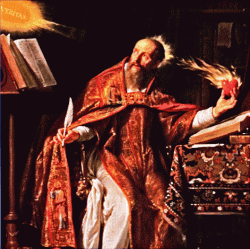 Augustin of Hippone (St. Augustine) is a pioneer in the expression of an unconscious motivation of the sign that describes the fourth century in his theory of signs. He says that "it is by the signs that we learn things" He also mentioned the delay of language on thought and explains: "The reason is mainly that this intuitive design floods my soul the way a quick flash while my speech is slow, long and very different from her. In addition, while it unfolds, this design has hidden in his retirement. But it leaves in memory, in a wonderful way, a number of footprints that remain in the short term and syllables that we use to shape called phonetic language. This language is Latin, Greek or Hebrew ... What signs are thought by the mind or they are expressed by the voice, fingerprints are neither Latin nor Greek, nor Hebrew, nor properly belong to any nation ". Augustin contemplates a state of sense impressions is that" do not belong to any language, "are unaware and seem universelles.
Augustin of Hippone (St. Augustine) is a pioneer in the expression of an unconscious motivation of the sign that describes the fourth century in his theory of signs. He says that "it is by the signs that we learn things" He also mentioned the delay of language on thought and explains: "The reason is mainly that this intuitive design floods my soul the way a quick flash while my speech is slow, long and very different from her. In addition, while it unfolds, this design has hidden in his retirement. But it leaves in memory, in a wonderful way, a number of footprints that remain in the short term and syllables that we use to shape called phonetic language. This language is Latin, Greek or Hebrew ... What signs are thought by the mind or they are expressed by the voice, fingerprints are neither Latin nor Greek, nor Hebrew, nor properly belong to any nation ". Augustin contemplates a state of sense impressions is that" do not belong to any language, "are unaware and seem universelles.
The perspective of psychanalystes
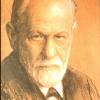 The psychoanalyst Sigmund Freud in the early twentieth century in psychoanalysis" this is the language that most turns. understand is zurückführen literally lead back, bring the language into its foundation, this Grundsprache, language depths or Seelesprache, language of the soul. "In The Interpretation of Dreams, Freud announces that the dream is a rebus and it must be understood literally. This structure-based letters or phonemes, which articulates the signifier in discourse, is a dynamic element of the dream, This figure of "man's head point." the Collective Unconscious, theorized by Carl Gustav Jung, guide social groups and humanity as the individual unconscious guide each person. Freud showed that the unconscious individual manifested in speech, especially in dreams and slips it considers the emergence of unconscious desires. Similarly for Jung the collective unconscious manifests itself in langue.
The psychoanalyst Sigmund Freud in the early twentieth century in psychoanalysis" this is the language that most turns. understand is zurückführen literally lead back, bring the language into its foundation, this Grundsprache, language depths or Seelesprache, language of the soul. "In The Interpretation of Dreams, Freud announces that the dream is a rebus and it must be understood literally. This structure-based letters or phonemes, which articulates the signifier in discourse, is a dynamic element of the dream, This figure of "man's head point." the Collective Unconscious, theorized by Carl Gustav Jung, guide social groups and humanity as the individual unconscious guide each person. Freud showed that the unconscious individual manifested in speech, especially in dreams and slips it considers the emergence of unconscious desires. Similarly for Jung the collective unconscious manifests itself in langue.
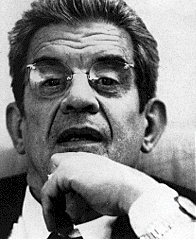 For Jacques Lacan, by which the notion of meaning is increased from linguistics to psychoanalysis in the 1960s, "the dream images are to retain their value as meaning" for what they used to spell the proverb (preverb) proposed by the riddle of the dream. For him, the meaning of the premium signifié.Le crossing the bar between signified and signifier for Lacan would be the play of signifiers them in each individual, with incessant sliding of the signified under the signifier which takes place in psychoanalysis by formulas of metonymy and metaphor, which he called "laws of language" of the unconscious .... Lacan says that "the unconscious knows that the elements of meaning", it is "a chain of signifiers that repeats and insists "that operates" without considering the signified or acoustic boundary syllables ", Lacan writes that" the unconscious is a language "consisting of elements of the signifier, the signified existing." He continues by arguing that "the unconscious is pure business letter, and as such, to read" ... Lacan states that "while cutting the material into meaning units, be they phonic, graphic, gestural or tactile order is literal. "But" if any meaningful sequence is a sequence of letters, however, be any sequence of letters is a meaningful sequence "." Signifiers function is to induce the meaning signified by imposing structure. "But Lacan, which perfectly describes all the features of the language of the unconscious, will not have curiously found the code, the system accurate and complete sequences signifying that this site be responsible. unconscious decoding This is a long process of decryption, exposed in the book "Hear the words that speak evil" Editions du Dauphin (2000 and 2006), prefaced by Jacques Salomé., it is gradually revealed to the reader to focus on listening to the resonance of words, to be attentive to her before sens.
For Jacques Lacan, by which the notion of meaning is increased from linguistics to psychoanalysis in the 1960s, "the dream images are to retain their value as meaning" for what they used to spell the proverb (preverb) proposed by the riddle of the dream. For him, the meaning of the premium signifié.Le crossing the bar between signified and signifier for Lacan would be the play of signifiers them in each individual, with incessant sliding of the signified under the signifier which takes place in psychoanalysis by formulas of metonymy and metaphor, which he called "laws of language" of the unconscious .... Lacan says that "the unconscious knows that the elements of meaning", it is "a chain of signifiers that repeats and insists "that operates" without considering the signified or acoustic boundary syllables ", Lacan writes that" the unconscious is a language "consisting of elements of the signifier, the signified existing." He continues by arguing that "the unconscious is pure business letter, and as such, to read" ... Lacan states that "while cutting the material into meaning units, be they phonic, graphic, gestural or tactile order is literal. "But" if any meaningful sequence is a sequence of letters, however, be any sequence of letters is a meaningful sequence "." Signifiers function is to induce the meaning signified by imposing structure. "But Lacan, which perfectly describes all the features of the language of the unconscious, will not have curiously found the code, the system accurate and complete sequences signifying that this site be responsible. unconscious decoding This is a long process of decryption, exposed in the book "Hear the words that speak evil" Editions du Dauphin (2000 and 2006), prefaced by Jacques Salomé., it is gradually revealed to the reader to focus on listening to the resonance of words, to be attentive to her before sens.
Discover the magic of a true Language of the Birds (or Language of Angels) and non puns and approximations to more or less wacky language attributed to him, which are only witnesses semiotic indirect the Language of discovering the unconscious, a Secret Language, perhaps sacred, the keywords were strangely obscured, as is the mysterious Challenge this Site! A Quest for the Holy Grail of Languages! Everything was the cry was followed by a prehistoric everything is written, which spread with Gutenberg and globalizing Google. "Maktub" say the Muslims, it is written.
SITE under construction
A French version exists:
signelinguitique.e-monsite.com
cliquez sur : Introduction
P
